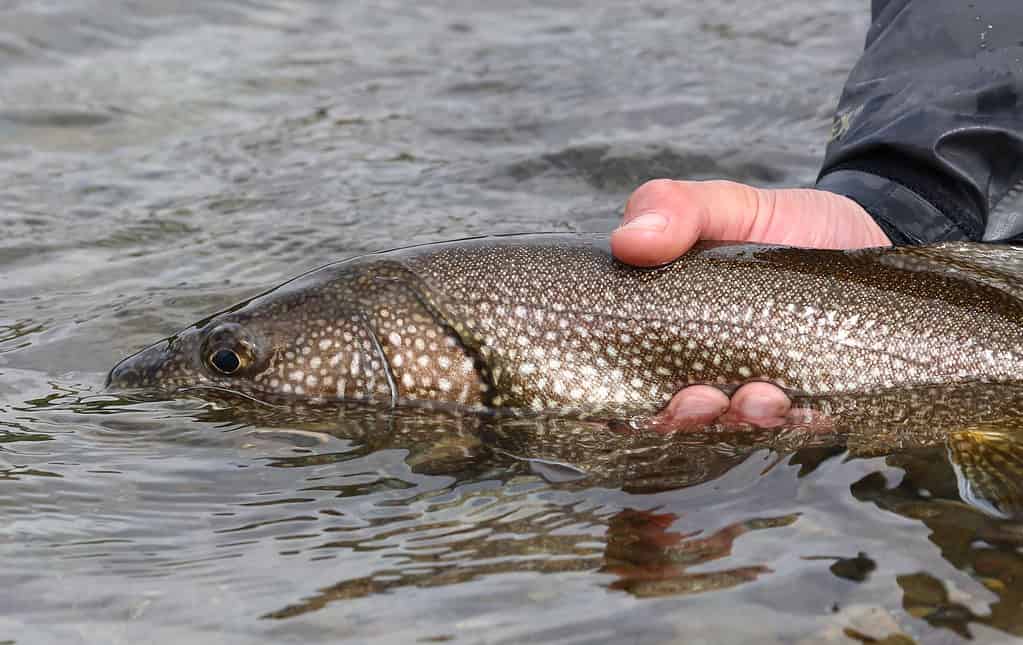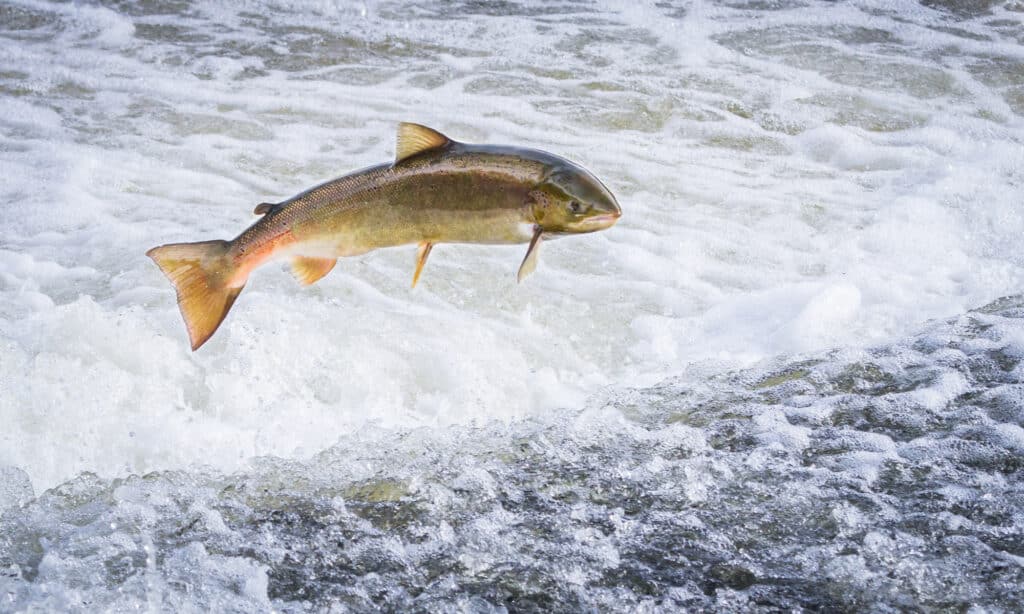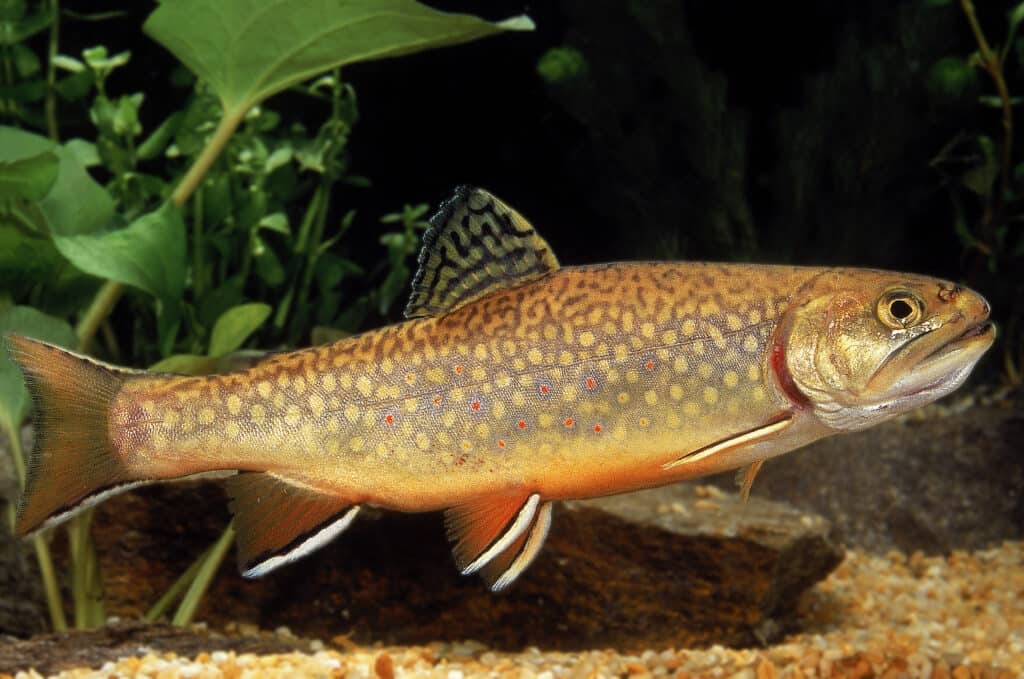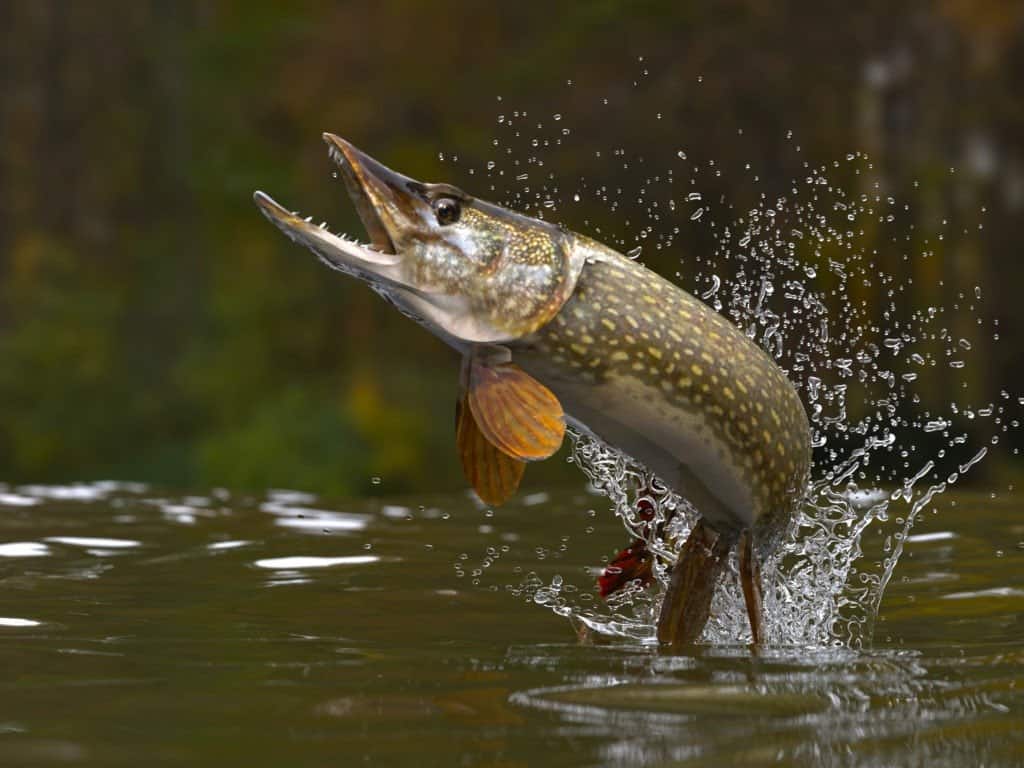Maine is a popular fishing destination, both for saltwater and freshwater fish. The state has over 6,000 lakes and ponds to choose from. When traveling to this beautiful state, you can also enjoy its 3,500 miles of coastline. It’s an anglers paradise. Lake trout is one of the most popular and common fish in Maine freshwater lakes. It’s native to Maine and is game fish and food fish. Keep reading to discover the largest lake trout ever caught in Maine.
About Lake Trout
Lake trout are common throughout Maine. They are also known as “togue,” “laker,” “grey trout,” and “mackinaw.” These large fish are one of the largest freshwater species in the state. Every angler has their own method of catching them, but these fish can be found deep in cold water and close to the shore when they are feeding.
Size and Description
Lake trout vary in size, but most grow between 18 to 24 inches long. However, some of the larger lake trout fish can reach 24–36 inches long. Lake trout, on average, weigh about 1 to 2 pounds, but there are larger fish, sometimes surpassing 10 pounds. These large freshwater fish have trout-shaped bodies and shimmering scales with white spots. The coloration varies but can be green, brown, white, or grey. Unlike other trout species, the lake trout also has a deeply forked tail.
Diet
In some lakes, these large fish are plankton feeders. However, lake trout primarily eat other small fish and insects in others. A common fish in their diet is the white perch. The younger a lake trout is, the more plankton they eat. Lake trout are also cannibalistic and will eat smaller lake trout.

Lake trout are usually brown or olive-gray and feature yellowish or white spots; their underparts are typically white.
©Iryna Harry/Shutterstock.com
The Largest Lake Trout Ever Caught in Maine
Erik Poland broke a 62-year-old record for the largest lake trout ever caught in Maine. On July 2, 2020, while fishing at Lower Richardson Lake in the Rangeley area, this impressive angler caught a 44-inch long lake trout. It weighed 39.2 pounds. According to the record-breaking angler, he caught the fish with a DB Smelt lure. The fish was about 94 feet underwater. It took the angler over an hour to catch the fish. The previous record was a 31.5-pound lake trout caught by Hollis Grindle in 1958 while fishing in Beech Hill Pond.
Where Is Lower Richardson Lake Located On a Map?
Lower Richardson Lake is located in Southwestern Maine, downstream of the greater Richardson Lakes. Umbagog Lake lies to the west along the state’s border with New Hampshire.
The Largest Lake Trout Ever Caught in the World
While lake trout as heavy as 102 pounds have been found in nets, the current IGFA all-tackle world record for Lake Trout weighs 72 pounds. In August 1995, Lloyd Bull caught a world-record 72-pound lake trout in Great Bear Lake in Canada. Great Bear Lake is the largest lake in the country and the fourth largest in North America. Recently an even larger lake trout was caught, but it didn’t take the IGFA all-tackle world record. Instead, the Deline First Nation was sustenance fishing using a gill net when they caught a massive 83-pound lake trout. They tried to revive the fish, but it was too late.
Other Common Freshwater Fish in Maine
Maine has many native fish species, and at least 19 have been introduced as popular game or food fish. As a result, there are hundreds of opportunities to fish and catch these beautiful fish. Listed below are some of the more common freshwater fish in Maine.
Landlocked Salmon
Landlocked salmon, also commonly known as “Atlantic salmon,” is native to Maine. These fish are about 16 to 18 inches long and weigh between 1 to 2 pounds. Landlocked salmon are easy to spot since they have small x-shaped dark marks on their backs and upper sides. These fish rely on rainbow smelts. If they don’t eat enough, they don’t grow very big. Landlocked salmon live in cold waters, less than 65 degrees. In the hot summer months, landlocked salmon dive deeper underwater, sometimes reaching depths up to 60 feet.

Landlocked salmon, also commonly known as “Atlantic salmon,” is native to Maine. These fish have small x-shaped dark marks on their backs and upper sides.
©Kevin Wells Photography/Shutterstock.com
Brook Trout
Brook trout are freshwater fish in the salmon family Salmonidae. Although they are native to Eastern North America, they’ve been introduced to other parts of North America and other continents like Asia and Europe. Brook trout is such an important and abundant fish that it’s the official state fish of nine states, including New York, West Virginia, and North Carolina. These beautiful fish are colorful with a marble pattern. Along the flanks, these fish have deep red dots surrounded by blue halos.

Brook trouts are colorful with a marble pattern. Along the flanks, they have deep red dots surrounded by blue halos.
©Slowmotion GLI/Shutterstock.com
Northern Pike
Northern pikes are carnivorous fish living in brackish freshwater. Pikes are huge fish. On average, they grow between 16 to 22 inches long and weigh anywhere from 20 to 40 pounds. The largest recorded northern pike weighed 63 pounds. Northern pikes are olive green with light and dark bar-like spots. They are ambush predators, waiting in weedy places for prey. Pike sports fishing is a popular sport and hobby, especially in Europe.

Northern pikes are carnivorous fish. They are olive green with light and dark bar-like spots.
©bekirevren/Shutterstock.com
The photo featured at the top of this post is © iStock.com/glxedwards
Thank you for reading! Have some feedback for us? Contact the AZ Animals editorial team.






